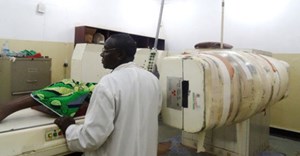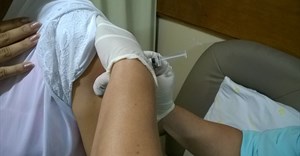Trending




 Sabre EMEA 2024 Awards: Razor PR, Retroviral top SA agenciesDanette Breitenbach
Sabre EMEA 2024 Awards: Razor PR, Retroviral top SA agenciesDanette Breitenbach
Elections 2024
SA study recommends changes to PMTCT guidelines

The current guidelines recommend that all HIV exposed uninfected infants (HEUs) born to HIV-positive mothers receive cotrimoxazole (CTX) prophylaxis, commencing at 4-6 weeks of age and continued until HIV infection can be excluded. However, the study indicates that there is no benefit of daily CTX among HEU breastfed infants, whose mothers are accessing a PMTCT programme and adhering to lifelong antiretroviral therapy (ART) in a non-malaria area. "We therefore recommend that it is removed from the PMTCT programme in non-malaria countries," says UKZN’s Emeritus Professor Anna Coustoudis from the Department of Paediatrics and Child Health.
The study was conducted over a five-year period, between October 2013 and October 2018 at the Lancers Road and Cato Manor clinics in Durban. The city is regarded as the epicentre of the HIV epidemic in South Africa. A cohort of 1,219 HEUs were enrolled in the study, where 611 receiving CTX and 608 did not. The study consisted of 653 male and 566 female HEUs. All of the infants that were enrolled were healthy, breastfeeding infants born to HIV-positive mothers (actively in PMTCT follow-up). The infants were HIV negative prior to the six week enrollment visit and were followed up until 12 months of age.
Interestingly a sub-study examining the microbiome of infants in the study found that the infants taking CTX prophylaxis had significantly higher resistance gene abundance than infants not taking CTX prophylaxis. Additionally infants taking CTX had decreased inter-individual microbiome diversity. These alterations to the microbiome are considered to be unfavourable and may have consequent negative health impacts.
"The findings of increased resistance to CTX are serious since some evidence exists that CTX resistance also confers with resistance against other important antibiotics used during childhood, for common illnesses. Since antibiotic resistance is a growing threat, and since these studies have shown CTX prophylaxis increases antibiotic resistance genes while showing no clinical benefit for HEU infants in nonmalaria countries, these data reiterate the call for revising the current cotrimoxazole guidelines for HEU infants when mothers are actively receiving ART.
"The other benefits of removing CTX as a routine treatment for HEUs includes cost savings, a reduction in the adverse health of the infants and a likely increase in quality of life of infants. We believe that CTX prophylaxis should not be started in HEUs that have a negative HIV test at birth and whose mothers are receiving and adherent to lifelong ART," says Coutsoudis.




